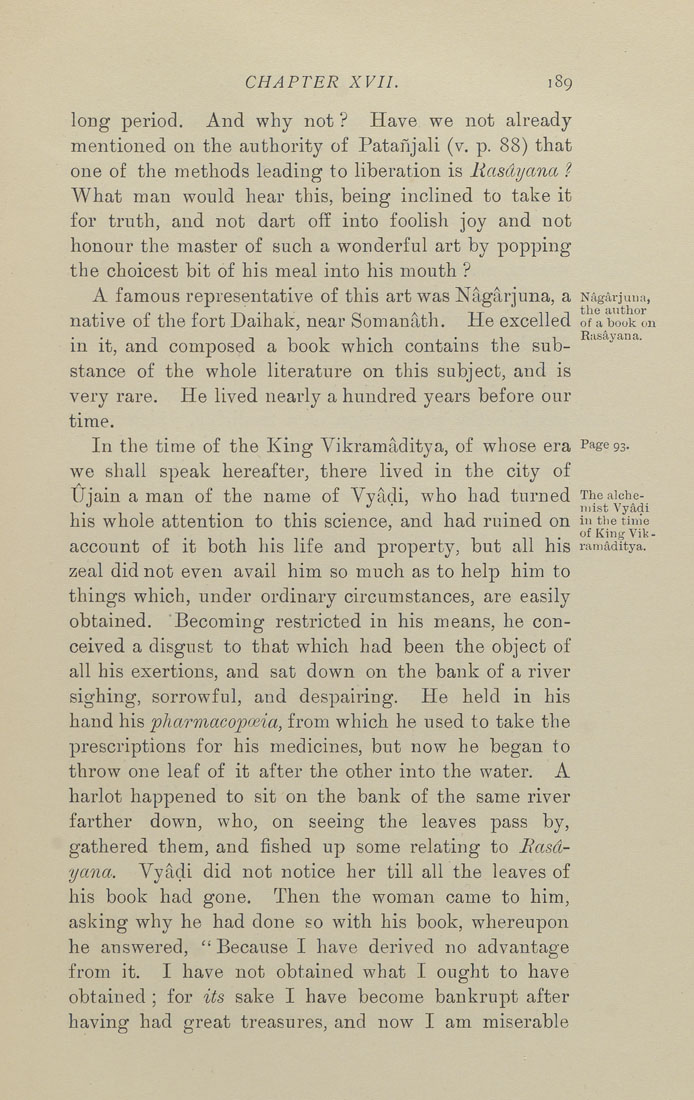Bīrūnī, Muḥammad ibn Aḥmad, Alberuni's India (v. 1)
(London : Kegan Paul, Trench, Trübner & Co., 1910.)
|
||
|
|
|
|
| Page 189 |

CHAPTER XVII. 189 long period. And why not ? Have we not already mentioned on the authority of Patanjali (v. p. 88) that one of the methods leading to liberation is Basdyana ? What man would hear this, being inclined to take it for truth, and not dart off into foolish joy and not honour the master of such a wonderful art by popping the choicest bit of his meal into his mouth ? A famous representative of this art was Nagarjuna, a Nagarjuna, native of the fort Daihak, near Somanath. He excelled of a took on in it, and composed a book which contains the sub- '"^**^*"^- stance of the whole literature on this subject, and is very rare. He lived nearly a hundred years before our time. In the time of the King Vikramaditya, of whose era Page 93. we shall speak hereafter, there lived in the city of IJiain a man of the name of Vyadi, who had turned Theaiche- . . . . . -, mist Vyadi his whole attention to this science, and had ruined on i" tiie time , . . n 1 • ofKingVik- account of it both las life and property, but all his ramaditya. zeal did not even avail him so much as to help him to things which, under ordinary circumstances, are easily obtained. Becoming restricted in his means, he con¬ ceived a disgust to that which had been the object of all his exertions, and sat down on the bank of a river sighing, sorrowful, and despairing. He held in his hand his pliarmacopma, from which he used to take the prescriptions for his medicines, but now he began to throw one leaf of it after the other into the water. A harlot happened to sit on the bank of the same river farther down, who, on seeing the leaves pass by, gathered them, and fished up some relating to Basd¬ yana. Vyadi did not notice her till all the leaves of his book had gone. Then the woman came to him, asking why he had done so with his book, whereupon he answered, " Because I have derived no advantage from it. I have not obtained what I ought to have obtained ; for its sake I have become bankrupt after having had great treasures, and now I am miserable |
| Page 189 |







